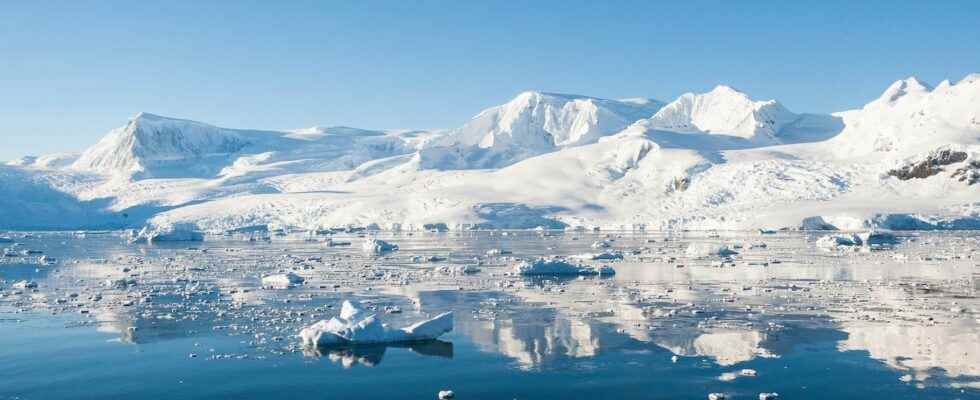France is about to experience a heat wave – a feather of heat, say the experts – which promises to be record. Probably an effect of anthropogenic global warming. And at the other end of the world, on the side of Antarctica, another manifestation of these changes induced by Men: glaciers that are melting as never for several millennia.
You will also be interested
[EN VIDÉO] Antarctica: a gigantic sheet of ice breaks off This video, made from radar images acquired by the TerraSAR-X satellite, shows the evolution of the formation of one of the largest known icebergs. Over the weeks and months, the satellite follows its evolution, from the appearance of the fault in the Larsen C ice shelf until its fragmentation.
Antarctica is a huge continent covered in ice. A single continent, but which scientists separate into two masses distinct ice: East Antarctica and West Antarctica. And the latter, in particular, has been melting at an accelerated rate in recent decades. In question, the global warming anthropogenic.
On the side of this Antarctic Westerners, researchers have identified glaciers particularly vulnerable. The Thwaites Glacier — with an area of about 192,000 square kilometers (km2) — and the Ile du Pin Glacier — about 162,000 km2. And recently a crew from the University of Maine (USA), British Antarctic Survey and of theImperial College London (United Kingdom) took a closer look. To better understand the evolutions of these glaciers, the researchers studied the fluctuations of the sea level in the surroundings since the middle of the Holocene. In other words, for about 5,500 years.
Remember that at that time, the climate of the Earth was warmer than it is today. The overall sea level was higher. The more discreet glaciers. To find out more precisely how much, the researchers worked on shells and bones found on what were then beaches. With the aim of giving an age to these beaches. To reconstruct local sea level changes.
Crisis level climate change is happening, right now.
“The rapidly retreating Thwaites and Pine Island glaciers together dominate present-day ice loss from the West Antarctic Ice Sheet and are implicated in runaway deglaciation scenarios.” https://t.co/uW8QwAXR4V
— Derek Cressman (@DerekCressman) June 12, 2022
Are the Antarctic glaciers lost?
Because even if the melting ice raise the sea level in the world, it has decreased on the side of West Antarctica. Indeed, glaciers tend to weigh on the earth. And when they melt, the earth tends to ” go back up “. As a result, those that were once beaches by the sea now find themselves well above this level.
The researchers’ analyzes now show that the relative sea level on the West Antarctic side has constantly fallen over the past 5,500 years. A consequence of the melting ice cream that occurred just before this time. What to bring a little more precision to models which remained until then a little coarse.
But what the team notes above all is that the rate of this decline was then almost 5 times lower than that measured today. And the researchers interpret this result as proof of a rapid melting of the ice in recent years. With a rate that has simply doubled over the past 30 years. Unheard of in the last 5,500 years!
Too late to stop the bleeding?
” These gears ice melt could suggest that these West Antarctic glaciers have passed a point of no return, leading to an acceleration of ocean flow potentially disastrous for sea levels. We now urgently need to determine s ‘it’s too late to stop the bleeding’comments Dylan Rood, researcher, in a release of theImperial College London.
To do this, the researchers intend to drill the glaciers and collect the rocks hiding underneath. They could provide clues to the reversibility of the phenomenon. A question that is all the more important when we know that scientists estimate that the melting of the ice in the region could lead to a global rise in sea level… of more than 3 meters!
Interested in what you just read?
